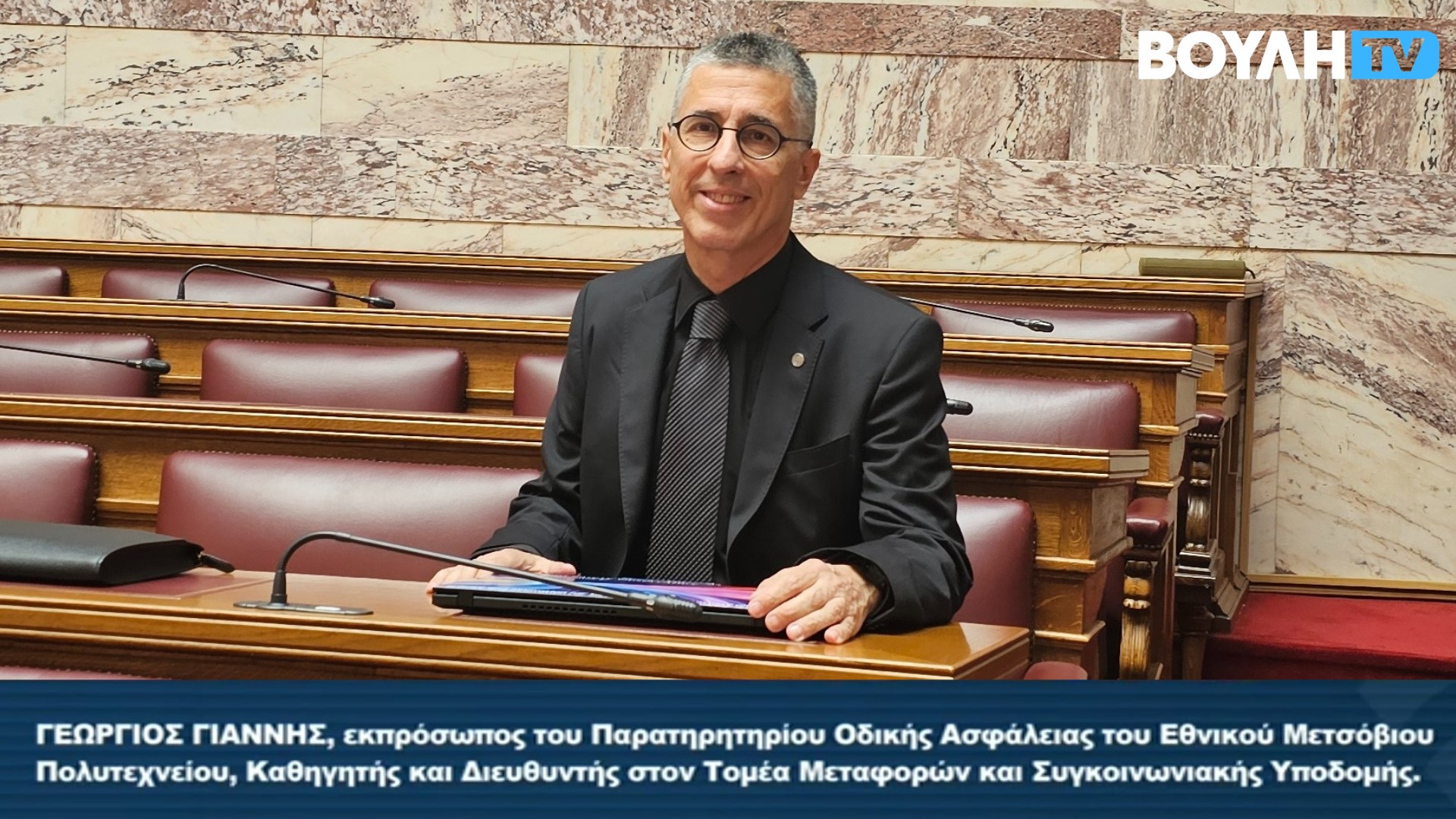The NTUA Road Safety Observatory is a Center of Research & Innovation Excellence on Road Safety, with global recognition with more than 30 years of contribution to scientific decision support in Greece, Europe and worldwide.
The new Road Traffic Code is a key action of the National Strategic Plan for Road Safety prepared with the scientific support of NTUA and it has been expected for several years and the proposal to be voted is complete and comprehensive. It has been an excellent long-term work by the Ministry of Infrastructure and Transportation, the Committee of the Road Traffic Code and the substantial input of the Transportation Engineers, most of whose contributions have been adopted. Congratulations to both the Committee and the Government for completing this whole process so well.
The New Road Traffic Code is moving in the right direction, correcting the distortions of the existing Road Traffic Code, by rationalising and simplifying penalties and linking them to the seriousness and magnitude of the offences. It also quite rightly refers to punishing drivers rather than vehicles and to further punishing recidivists. In addition, it introduces a number of correct and necessary traffic management provisions with emphasis on motorcycles (filtering & special waiting zone at traffic lights) and the 30km/h speed limit in cities.
For the effective implementation of the new Road Traffic Code, necessary accompanying measures are needed, as foreseen in the Strategic Road Safety Plan, in order to reduce the human intervention that currently delays and ultimately renders the penalty system ineffective. First of all, by installing cameras for the certification of fines for all basic offences (speeding, helmet, seat-belt, mobile phone use) which is now possible by the new technologies and in parallel with the digital management of fines with the interconnection of the systems of Traffic Police, the Ministry of Infrastructure and Transport and the Taxes Authority. And it is very important that this Government has already initiated these necessary actions.
While the system of fines has been rationalised, a concern in the enforcement of the Road Traffic Code is the sometimes very severe penalties concerning the withdrawal of the driving licence, which may make it difficult for traffic officers to enforce the Road Traffic Code. A standing suggestion of the Transportation Engineers is that fines which are low but systematic can bring much better results in driver compliance than high but few fines.
The provision for a 30km/h speed limit on all roads of one or two directions with one lane in each direction in all urban areas is a bold and very good choice, giving the right message that lower speeds lead to fewer and less serious road crashes. It is expected to bring spectacular results and it is estimated that more than 100 lives will be saved annually in Greece, especially motorcyclists, who are the major problem in Greece, but also pedestrians. Its scope is, in principle, well defined. In the future, in order to achieve further results, consideration should be given to applying it to single carriageways with two lanes of traffic.
Intervention in the Greek Parliament in June 2025

